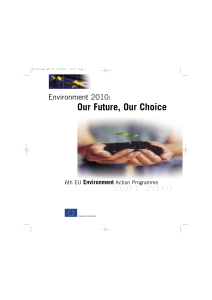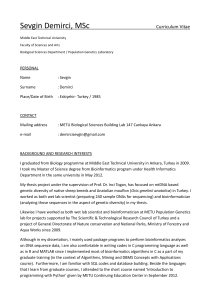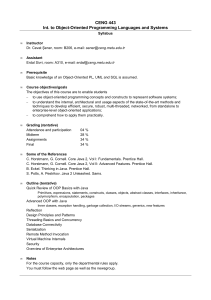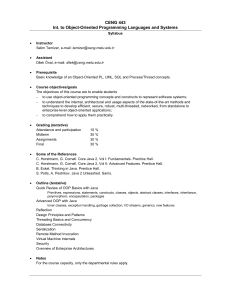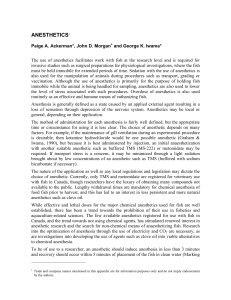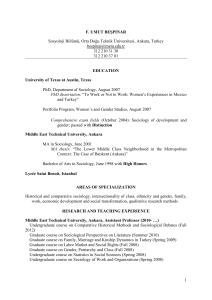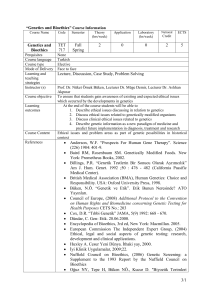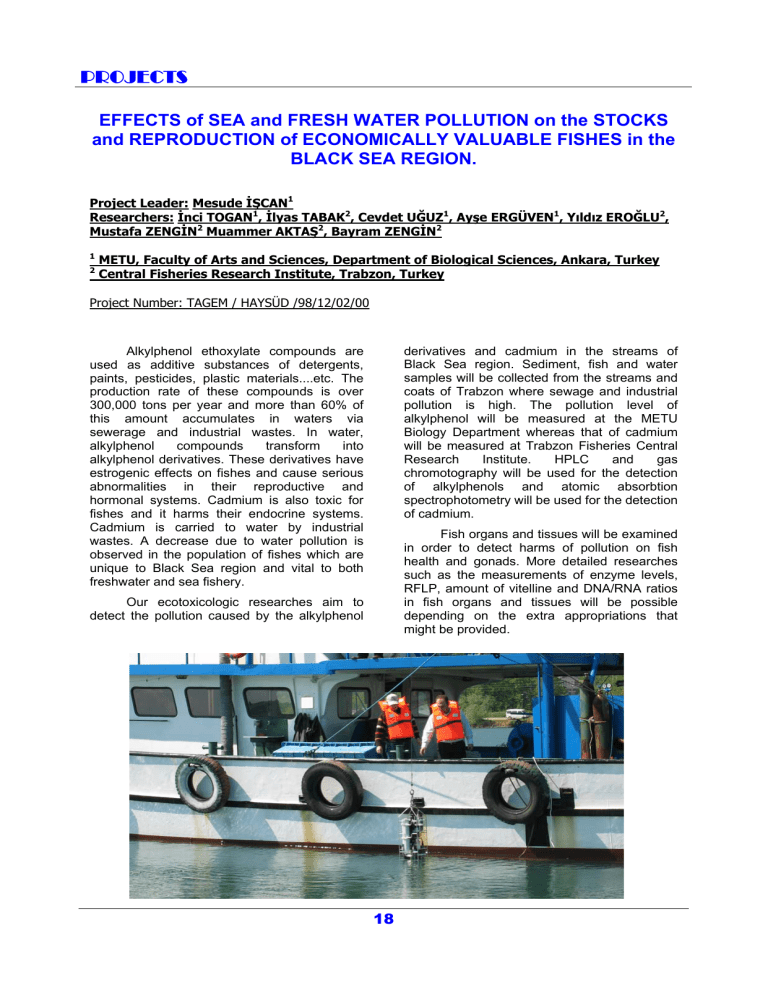
PROJECTS
EFFECTS of SEA and FRESH WATER POLLUTION on the STOCKS
and REPRODUCTION of ECONOMICALLY VALUABLE FISHES in the
BLACK SEA REGION.
Project Leader: Mesude İŞCAN1
Researchers: İnci TOGAN1, İlyas TABAK2, Cevdet UĞUZ1, Ayşe ERGÜVEN1, Yıldız EROĞLU2,
Mustafa ZENGİN2 Muammer AKTAŞ2, Bayram ZENGİN2
1
2
METU, Faculty of Arts and Sciences, Department of Biological Sciences, Ankara, Turkey
Central Fisheries Research Institute, Trabzon, Turkey
Project Number: TAGEM / HAYSÜD /98/12/02/00
Alkylphenol ethoxylate compounds are
used as additive substances of detergents,
paints, pesticides, plastic materials....etc. The
production rate of these compounds is over
300,000 tons per year and more than 60% of
this amount accumulates in waters via
sewerage and industrial wastes. In water,
alkylphenol
compounds
transform
into
alkylphenol derivatives. These derivatives have
estrogenic effects on fishes and cause serious
abnormalities in their reproductive and
hormonal systems. Cadmium is also toxic for
fishes and it harms their endocrine systems.
Cadmium is carried to water by industrial
wastes. A decrease due to water pollution is
observed in the population of fishes which are
unique to Black Sea region and vital to both
freshwater and sea fishery.
derivatives and cadmium in the streams of
Black Sea region. Sediment, fish and water
samples will be collected from the streams and
coats of Trabzon where sewage and industrial
pollution is high. The pollution level of
alkylphenol will be measured at the METU
Biology Department whereas that of cadmium
will be measured at Trabzon Fisheries Central
Research
Institute.
HPLC
and
gas
chromotography will be used for the detection
of alkylphenols and atomic absorbtion
spectrophotometry will be used for the detection
of cadmium.
Fish organs and tissues will be examined
in order to detect harms of pollution on fish
health and gonads. More detailed researches
such as the measurements of enzyme levels,
RFLP, amount of vitelline and DNA/RNA ratios
in fish organs and tissues will be possible
depending on the extra appropriations that
might be provided.
Our ecotoxicologic researches aim to
detect the pollution caused by the alkylphenol
18

